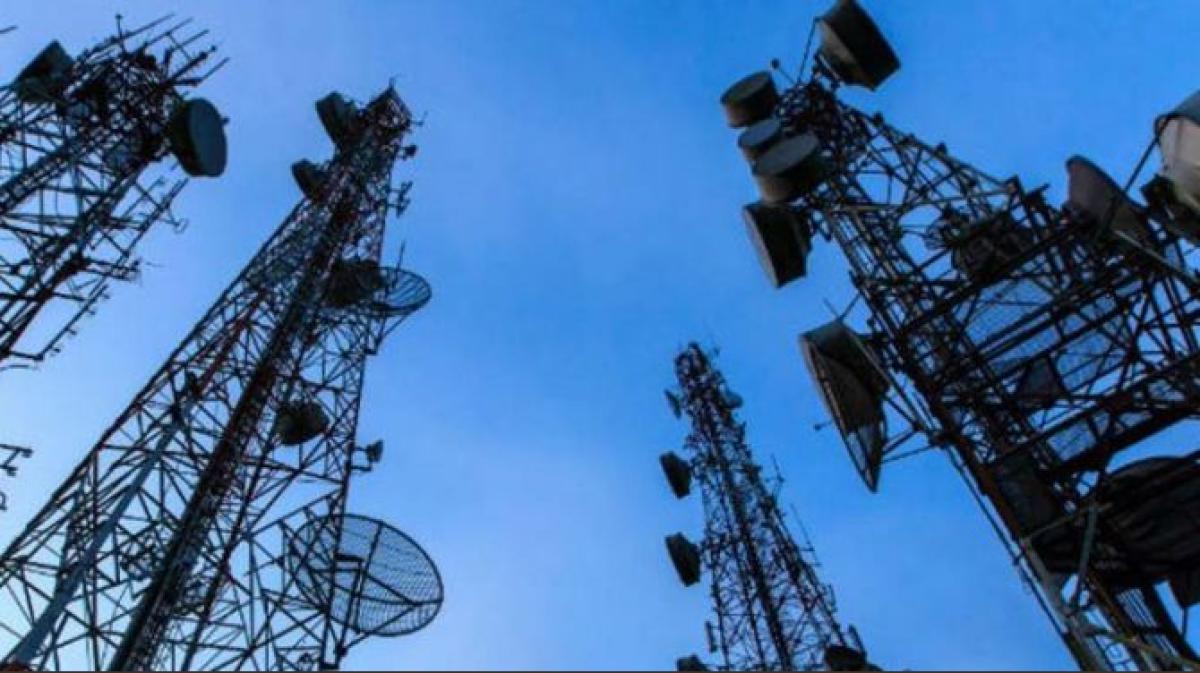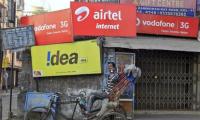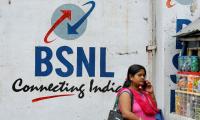Telecom Licensing Overhaul: Trai Recommends 3 Categories
The Telecom Regulatory Authority of India (Trai) has recommended a new licensing regime with 3 categories of authorisations: main, auxiliary, and captive. Learn more about the changes and their impact on the telecom industry.

New Delhi, Sep 18 (PTI) Setting the stage for an overhaul of the existing telecom service licensing regime, Trai on Wednesday recommended three broad categories of telecommunication service authorisations -- main service authorisations, auxiliary service authorisations, and captive service authorisations -- but does not explicitly mention OTT.
Under the new authorisation framework, 'Unified Service Authorisation' has been introduced to achieve the objective of 'One Nation - One Authorisation' across services and service areas, Trai said as it released recommendations on the 'Framework for Service Authorisations to be Granted Under the Telecommunications Act, 2023'.
The Telecom Regulatory Authority of India (Trai) said the government should grant service authorisation under the new Telecommunications Act, 2023 instead of entering into an agreement with the entity.
The new service authorisation framework left out OTT from its ambit, while proposing that commercial 'VSAT-CUG service' and 'GMPCS' are merged in a single 'satellite-based telecommunication service authorisation'.
Such an authorisation should be a concise document, and the terms and conditions for a service authorisation should be prescribed through the rules to be notified under the Telecommunications Act, 2023.
Under the new authorisation framework, Commercial VSAT-CUG service and GMPCS have been merged in a single authorisation -- 'Satellite-based Telecommunication Service Authorisation'.
"The extant restriction on VSAT operators to provide services to only closed user group (CUG) has been removed under the new authorisation framework. Both VSAT based FSS and GMPCS service have been included under the scope of satellite-based Telecommunication Service Authorisation," Trai said.
Explaining the distinction between the three categories of authorisations (main, auxiliary and captive) recommended, Trai said the main service authorisations cover all primary telecom services such as access services, internet services, long distance services, satellite-based telecommunication services and M2M WAN services.
"All main service authorisations can be granted in two sub-categories -- Network Service Operator (NSO), and Virtual Network Operator (VNO)," it said.
Auxiliary service authorisations, on the other hand, include all other existing service authorisations (other than captive services), which are in general provided to the enterprise users and not to public at large and have very light touch regulatory oversight," it said.
This includes services such as PMRTS, PM-WANI, M2M Service and M2M service and WPAN/ WLAN connectivity service, enterprise communication services, IFMC, data communication service between aircraft and ground stations, etc.
"Each service authorisation will be governed by different terms and conditions which has to prescribed through different rules for each service authorisation," it said.
Captive service authorisation covers the service authorisations for establishment of captive network after obtaining assignment of spectrum from the central government, such as CMRTS, CNPN, Captive VSAT CUG, etc.
Under the new authorisation framework, 'Unified Service Authorisation' has been introduced to achieve the objective of 'One Nation - One Authorisation' across services and service areas.
"An entity holding Unified Service Authorisation can provide mobile service, internet service, broadband service, landline telephone service, long-distance service, satellite communication service, Machine to Machine (M2M) and loT service etc. on a pan-India basis under a single authorisation," according to Trai.
Unified Service authorised entity will have complete flexibility for routing its domestic traffic.
Under the new authorisation framework, National Long Distance (NLD) service and International Long Distance (ILD) service have been merged in a single authorisation namely, 'Long Distance Service Authorisation'.
This authorisation also permits the establishment of ILD Gateway as well as cable landing stations for both domestic and international submarine cables. Carrying domestic traffic through submarine cables connecting two coastal cities of India has been allowed in 'Long Distance Service Authorisation'.
Further, the entry fee for different service authorisations have been significantly reduced, which is expected to open the doors for new service providers, drive fresh investments, and boost competition within the telecom market, Trai said.
Under the new authorisation framework, 'Unified Service Authorisation' has been introduced to achieve the objective of 'One Nation - One Authorisation' across services and service areas, Trai said as it released recommendations on the 'Framework for Service Authorisations to be Granted Under the Telecommunications Act, 2023'.
The Telecom Regulatory Authority of India (Trai) said the government should grant service authorisation under the new Telecommunications Act, 2023 instead of entering into an agreement with the entity.
The new service authorisation framework left out OTT from its ambit, while proposing that commercial 'VSAT-CUG service' and 'GMPCS' are merged in a single 'satellite-based telecommunication service authorisation'.
Such an authorisation should be a concise document, and the terms and conditions for a service authorisation should be prescribed through the rules to be notified under the Telecommunications Act, 2023.
Under the new authorisation framework, Commercial VSAT-CUG service and GMPCS have been merged in a single authorisation -- 'Satellite-based Telecommunication Service Authorisation'.
"The extant restriction on VSAT operators to provide services to only closed user group (CUG) has been removed under the new authorisation framework. Both VSAT based FSS and GMPCS service have been included under the scope of satellite-based Telecommunication Service Authorisation," Trai said.
Explaining the distinction between the three categories of authorisations (main, auxiliary and captive) recommended, Trai said the main service authorisations cover all primary telecom services such as access services, internet services, long distance services, satellite-based telecommunication services and M2M WAN services.
"All main service authorisations can be granted in two sub-categories -- Network Service Operator (NSO), and Virtual Network Operator (VNO)," it said.
Auxiliary service authorisations, on the other hand, include all other existing service authorisations (other than captive services), which are in general provided to the enterprise users and not to public at large and have very light touch regulatory oversight," it said.
This includes services such as PMRTS, PM-WANI, M2M Service and M2M service and WPAN/ WLAN connectivity service, enterprise communication services, IFMC, data communication service between aircraft and ground stations, etc.
"Each service authorisation will be governed by different terms and conditions which has to prescribed through different rules for each service authorisation," it said.
Captive service authorisation covers the service authorisations for establishment of captive network after obtaining assignment of spectrum from the central government, such as CMRTS, CNPN, Captive VSAT CUG, etc.
Under the new authorisation framework, 'Unified Service Authorisation' has been introduced to achieve the objective of 'One Nation - One Authorisation' across services and service areas.
"An entity holding Unified Service Authorisation can provide mobile service, internet service, broadband service, landline telephone service, long-distance service, satellite communication service, Machine to Machine (M2M) and loT service etc. on a pan-India basis under a single authorisation," according to Trai.
Unified Service authorised entity will have complete flexibility for routing its domestic traffic.
Under the new authorisation framework, National Long Distance (NLD) service and International Long Distance (ILD) service have been merged in a single authorisation namely, 'Long Distance Service Authorisation'.
This authorisation also permits the establishment of ILD Gateway as well as cable landing stations for both domestic and international submarine cables. Carrying domestic traffic through submarine cables connecting two coastal cities of India has been allowed in 'Long Distance Service Authorisation'.
Further, the entry fee for different service authorisations have been significantly reduced, which is expected to open the doors for new service providers, drive fresh investments, and boost competition within the telecom market, Trai said.
You May Like To Read
TODAY'S MOST TRADED COMPANIES
- Company Name
- Price
- Volume
- Vodafone-Idea-L
- 11.65 (+ 3.56)
- 106772451
- Alstone-Textiles
- 0.28 ( -3.45)
- 44187760
- Mangalam-Industrial
- 0.88 ( -2.22)
- 39177573
- Sunshine-Capital
- 0.27 (+ 3.85)
- 35956340
- GMR-Airports
- 104.40 (+ 6.37)
- 30453005





